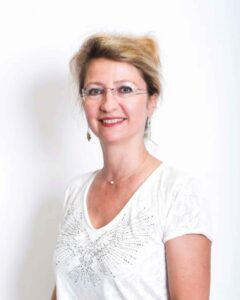In 2030, a company will be RSO or will not. During a webinar organized by Walter France, Michel Gire, president of this network of independent audit firms, of expertise and advice and precursor of RSO, Yveline Pouillot, responsible for RSO and Olivier Prentout, SME manager, have demonstrated why companies only have benefits to gain from such an approach.
Like any crisis, the current pandemic is a trend accelerator. Many people reflect on their lifestyles and aspirations, and want to reconnect with their environment, in the broadest possible sense. This awareness allows us to better consider the imperative need for sustainable development., at the intersection of economic spheres, social and environmental. For Michel Gire, France's recovery plan which is divided into three thirds : for the environment, for the economy and for social, is a perfect symbol of this new paradigm. In this context, RSO procedures are increasing, and we gradually move from unconstrained approaches to internal and external pressure for organizations to transform. In 1960, the environmentalist vision predominated. It was in 1987 that the current definition took root : “Sustainable development meets the needs of the present without compromising the ability of future generations to meet their own needs” and has integrated the indivisibility of the three economic spheres, social and environmental. The Social Responsibility of Organizations (according to the now well-established ISO 26000 standard) revolves around seven central questions : human rights, relations and working conditions, good business practices, consumer issues, the environment and societal commitment, and, in above, organizational governance.
A state of mind above all

RSO must be a holistic approach, transversal, which concerns all areas of the company, and not just purchasing or human resources, as one might be tempted to believe. Olivier Prentout is director of Corolo, a company, based in La Rochelle, IT solutions for social management and product traceability in mass distribution. According to him, each individual must be aware that he is nothing without others, he must be responsible for his own actions, but must also project oneself into the actions of others, so that this interaction of oneself on others and of others on oneself generates a virtuous circle. This is how a dynamic of continuous improvement is created on these three economic themes., social and environmental. This state of mind must be supported by management, but it is this transversal approach that will allow it to continue beyond the leader of the moment, so that middle management continues to bring these values to life.
How to do it
Yveline Pouillot recommends a five-step approach.

A : Carry out documentary research to understand how you can define your own values, depending on its economic environment, geographical…, study the RSO reports of companies in your sector, standards…
Of them : Define your values, work which can lead, for example, to questioning your teams to identify what everyone expects from their professional environment, of his business.
Three : Identify your stakeholders. Olivier Prentout, For example, transferred its offices from the Paris region to La Rochelle. Having been well received upon his arrival in a business center thanks to the town hall, he then did everything to integrate into his environment, working with the university, by hiring employees from regional business or engineering schools. At each step, the idea is to ask the question : what trace do we leave ?
Four : Carry out a diagnosis of the existing situation : everyone gets a little RSO without knowing it !
Five : Work on relevant action areas : focus on a few visible actions so that all stakeholders, like the teams, customers and suppliers, see that the approach works.
How to keep the process alive over time
It is the principle of continuous improvement that applies : make commitments, realize, set up a monitoring dashboard, correct and adapt actions… It’s a permanent questioning, which is possible in all structures. Companies in the tertiary sector will be able to usefully question their digital footprint, for example.. Yveline Pouillot publishes an integrated report every year. Same logic for Olivier Prentout who distributes his RSO results mainly internally : “It’s a unifying tool. Every year, beyond the numbers, RSO allows us to share our successes and our new goals. It’s really a kind of glue for the company. » Having a label serves as a tool to monitor all your commitments ; every 18 months, the audit is a good reminder !
How much does it cost… and how much does it cost?













